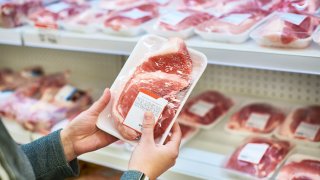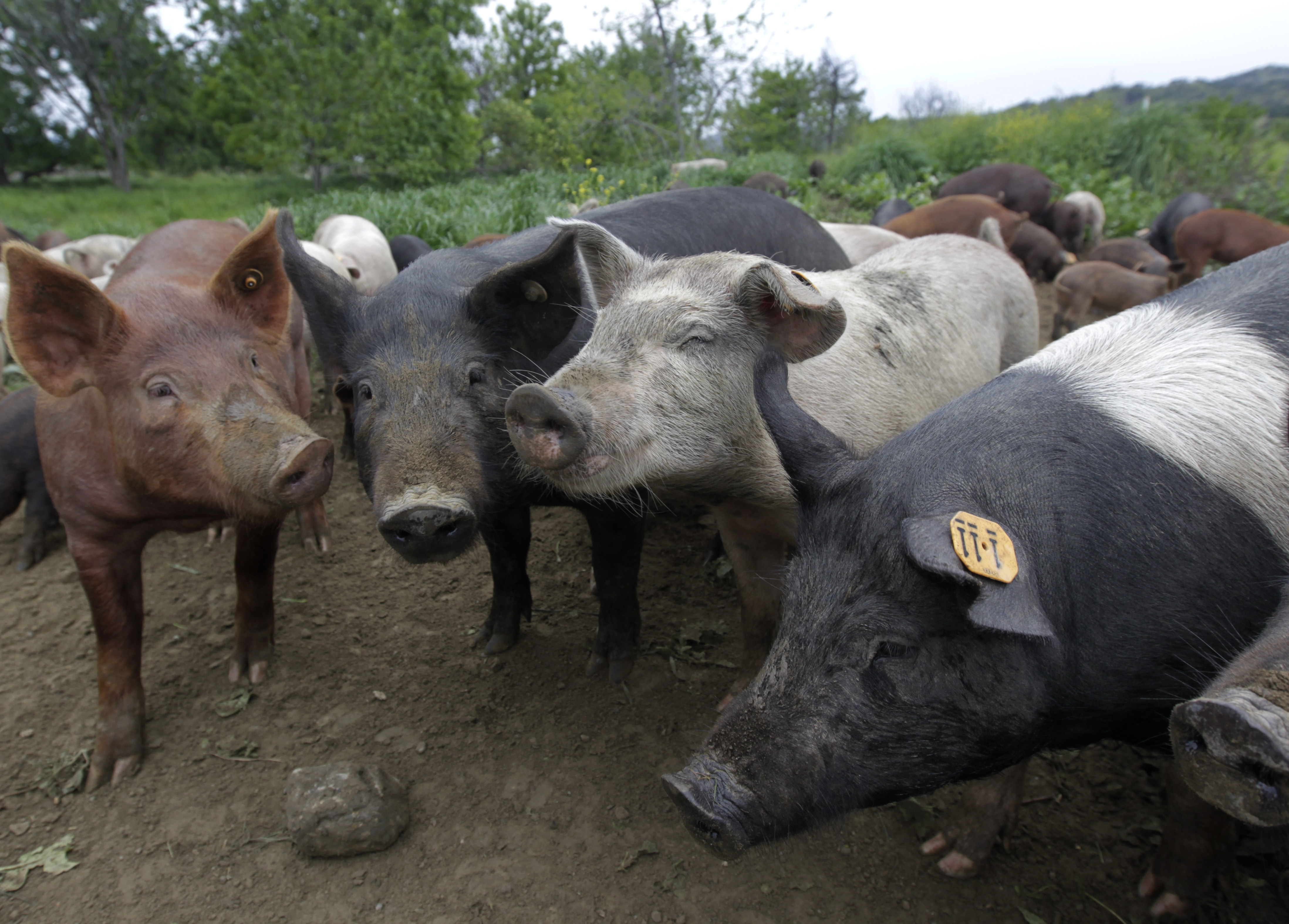
A prohibition on the sale of pork from pigs housed in too-cramped conditions -- even those raised and slaughtered in other states -- has taken effect in Massachusetts, nearly seven years after voters approved a new framework for the treatment of livestock.
Earlier this month, a federal judge on Monday approved a compromise joint motion between state regulators and industry groups, who had challenged the voter-approved law, that allowed enforcement of most pork-related regulations starting Thursday.
Products that pass through Massachusetts on their way to final sale destinations in other states, however, are not immediately subject to the new requirements.
As part of the deal, Attorney General Andrea Campbell's office and the Massachusetts Department of Agricultural Resources will not enforce any new restrictions on "transshipped" pork meat for at least six months. In that span, MDAR will explore a potential regulatory carveout explicitly exempting products that traverse the Bay State but are neither produced nor sold here.
Get Boston local news, weather forecasts, lifestyle and entertainment stories to your inbox. Sign up for NBC Boston’s newsletters.
Voters in 2016 approved a ballot question banning the sale of eggs, veal and pork from animals held in conditions deemed cruel. The egg and veal regulations already took effect, but the pork portion remained in limbo amid multiple legal battles.
The National Pork Producers Council, the Massachusetts Restaurant Association and others filed a lawsuit against the Massachusetts measure, and NPPC also challenged a similar law in California.
In May, the U.S. Supreme Court upheld the California law, and animal welfare groups that backed the Massachusetts ballot question campaign -- as well as restaurants and grocery stores whose sales would be affected -- have been waiting since then for clear answers on what to expect here.
"We're going to finally see implementation. We just want to make sure that the plaintiffs in the case are not going to continue to work to undermine proper implementation," said Wayne Pacelle, president of the Animal Wellness Action group and an architect of the Massachusetts ballot question, earlier this month. "I think our concerns now go to whether the people in the retail industry are going to honor the spirit and the letter of the law."
The already-drafted regulations require pigs to have enough space to lie down, stand up, turn around freely and fully extend their limbs. Massachusetts businesses cannot sell any whole pork meat derived from animals denied that space, regardless of where they were raised, slaughtered and butchered. The prohibition does not extend to "combination food products" that use pork as an ingredient such as hot dogs.
Almost all of the pork sold in Massachusetts comes from other states. According to statistics cited in one lawsuit challenging the Bay State's pig welfare law, Massachusetts residents consumed about 356 million pounds of retail pork in 2022, only about 1.9 million pounds of which was produced within its borders.
Campbell's office said in California, "transshipped" pork is not subject to the same requirements as pork produced in-state or sold to California customers. MDAR is now exploring whether it should also treat transitory pork products differently given that their connection to Massachusetts is relatively limited.
The joint motion that U.S. District Court Judge Margaret Guzman approved paused just the "transshipped" pork part of the regulations for at least six months, perhaps up to a year, giving plaintiffs a chance to "assess whether the potential regulatory change resolves the remaining legal issue."
Plaintiffs reserved their legal rights to continue challenging the regulations on transshipped pork once the review concludes.
Officials began enforcement of other pork regulations governing production and sale in Massachusetts starting Thursday, a change that may impact availability and prices of popular cuts.



